Infectious Disease Outbreaks
Learn about how rural communities have prepared for, responded to, and recovered from infectious disease outbreaks.
COVID-19 Community-Designed Testing Programs Benefit Rural and Underserved Communities in Oklahoma
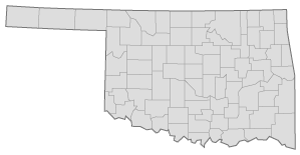
Community-engaged Approaches to Testing in Community and Healthcare settings for Underserved Populations (CATCH-UP Oklahoma) is a collaborative research project hosted by the Public Health Institute of Oklahoma, in partnership with the Oklahoma State Department of Health (OSDH) and the Oklahoma Clinical and Translational Science Institute (OCTSI) at the University of Oklahoma Health Sciences Center (OUHSC). The community engagement arm of the program focuses on increasing access to COVID-19 testing in the state through community-designed testing events in rural areas. Throughout 2021, the CATCH-UP program generated 49 testing site partners, hosted around 400 community-designed testing events, administered almost 7,500 COVID-19 tests, and reinvested nearly $1 million into rural and underserved communities through testing site partner compensation funds.
COVID-19 Community Impact Mitigation: COVID Caring Cash Program Provides Economic Relief to Local Businesses in Richland Center, Wisconsin
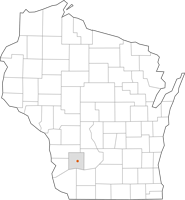
Southwest Partners, a community development group based in Richland County, Wisconsin, developed the COVID Caring Cash program as a form of emergency economic relief in response to the COVID-19 pandemic in April 2020. The program encouraged the residents of Richland Center, a city in Richland County, to shop locally by providing vouchers and sponsor-backed incentives to be used in stores, restaurants, and venues in accordance with local COVID-19 safety protocols in place at the time. COVID Caring Cash was a community-wide success, generating over $300,000 of impact in Richland Center and helping the local “mom and pop” stores, which were staples of the community, survive.
COVID-19 Community Task Force Utilizes Cross-Sector Response in Rural Greenbrier County, West Virginia
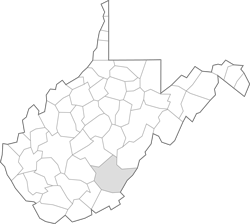
Beginning in March 2020, the Greenbrier County COVID-19 Task Force in West Virginia mobilized in response to the COVID-19 pandemic in their community. Leaders in public health, emergency management, education, business, nonprofit, and government worked across sectors to bring vaccinations to the rural area for emergency pandemic response. Drawing on lessons learned from a series of fatal floods in 2016, the Task Force provided support to the community through communication, collaboration, and coordination.
COVID-19 Pandemic Vaccination Efforts by the Louisiana Bureau of Emergency Medical Services
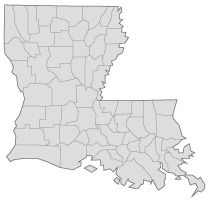
When a vaccine for COVID-19 was authorized for emergency use at the end of 2020, the Governor of Louisiana recognized the important work of emergency medical service (EMS) practitioners and placed them in the tier 1 recipient category for the vaccine rollout. The Louisiana Bureau of EMS was placed in charge of rural vaccine distribution and administration to first responders throughout the state. In all, over 20,000 doses of COVID-19 vaccine were distributed to rural first responders and EMS personnel through either direct delivery and administration or through a partnership with the Louisiana Sheriff's Association.
COVID-19 Symptom Tracking and Exposure Notification Tools Developed by the University of Alabama at Birmingham Extend Awareness and Access to Rural Communities in Alabama
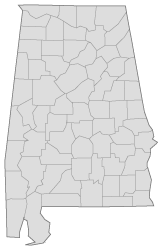
The University of Alabama at Birmingham (UAB) implemented several COVID-19 mitigation tools during the early stages of the SARS-CoV-2 coronavirus pandemic, starting in March of 2020. These tools increased access to COVID-19 awareness and education resources for rural communities across the state of Alabama and centered on behavioral change as a way to slow the spread of infectious disease.
Fall 2021 COVID-19 Surge Hits Remote Island Community in Alaska: Local Critical Access Hospital Responds Under Challenging Circumstances
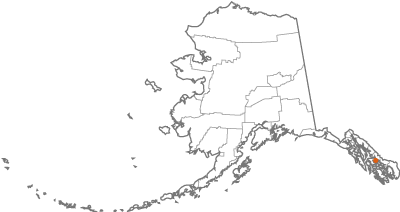
In response to a sharp increase in COVID-19 infections, driven largely by the appearance of the Delta variant, Alaska activated crisis standards of care (CSC) guidelines for 20 medical facilities in the fall of 2021. One rural community affected by this was the Borough of Petersburg, located on Mitkof Island in southeastern Alaska, which had COVID cases spike from October through November. To address the situation, the island's sole healthcare provider, Petersburg Medical Center, saw the need to serve as a focal point for Petersburg's public health response to the pandemic, going beyond their typical role as a Critical Access Hospital. In this expanded role, the hospital faced significant challenges related to geography, workforce, transportation, and community perceptions and attitudes. Coordinating closely with the borough, public schools, the state health department, and other key partners, the hospital provided a strong response in multiple areas, including testing and vaccination, provision of evidence-based COVID treatments, wraparound services, implementation of state and federal policies, and public communications.
Federally Qualified Health Center Provides COVID-19 Care to Rural Communities in Pennsylvania and Northeastern Ohio through Mobile Health Unit and Vaccine Hesitancy Work
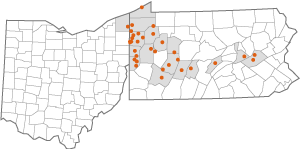
Primary Health Network (PHN), headquartered in Mercer County, Pennsylvania, serves rural communities within select counties across Pennsylvania and northeastern Ohio. During the COVID-19 pandemic in 2020, the Federally Qualified Health Center (FQHC) purchased a mobile health unit to bring testing and vaccinations to rural and underserved communities. In addition to providing healthcare services, PHN clinicians and support staff also conducted outreach to dispel vaccine hesitancy, reluctance, and misinformation.
Wayne Memorial Community Health Centers in Pennsylvania Stay Ahead of the Curve, Keep Emergency Response Plans Updated throughout the COVID-19 Pandemic
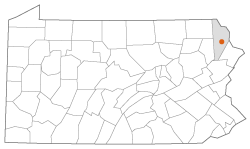
When the COVID-19 pandemic reached Pennsylvania in March 2020, the first case was recorded in the area served by Wayne Memorial Community Health Centers in rural Honesdale. By tailoring their response plan to their specific community needs, the Wayne Memorial Community Health Centers responded to the pandemic quickly and efficiently. They incorporated lessons learned from other infectious disease near-outbreaks they had experienced, so their response plan was continuously updated. Incorporating lessons learned from previous emergencies, as well as the ongoing COVID-19 pandemic, allowed them to know, in advance, what works in their community responses.
